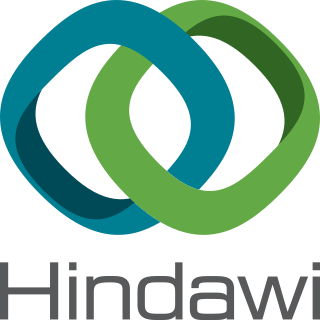Jan Velterop | |
|---|---|
 | |
| Born | Johannes Josephus Marinus Velterop 18 March 1949 |
| Known for | |
| Scientific career | |
| Fields | |
| Institutions | |
| Website | theparachute |
Johannes (Jan) Josephus Marinus Velterop (born 18 March 1949) is a science publisher. [2] [3]
Jan Velterop | |
|---|---|
 | |
| Born | Johannes Josephus Marinus Velterop 18 March 1949 |
| Known for | |
| Scientific career | |
| Fields | |
| Institutions | |
| Website | theparachute |
Johannes (Jan) Josephus Marinus Velterop (born 18 March 1949) is a science publisher. [2] [3]
Born in The Hague, Netherlands, he was originally a marine geophysicist and became a science publisher in the mid-1970s.
Velterop started his publishing career at Elsevier in Amsterdam. After a few years out of the scientific field as the director of the Dutch regional newspaper De Twentsche Courant, he returned to international science publishing at Academic Press in London. He next joined Nature as director for a short while, but moved quickly on to help get BioMed Central, the first commercial open access science publisher, off the ground.
Velterop was one of the small group of people who first defined "open access" in 2001 in Budapest, a meeting resulting in the Budapest Open Access Initiative [4]
In 2005 he joined Springer Science+Business Media in the United Kingdom as Director of Open Access.
At the end of March 2008 he left Springer [5] to help further develop semantic approaches to accelerate scientific discovery. Since January 2009 he is involved in the Concept Web Alliance [6] as one of the initiators. He lives in Guildford, UK. He is an active advocate of open access and of the use of microattribution (the hallmark of so-called "nanopublications"). [1] [7]
Velterop also serves on the Advisory Boards of several initiatives and companies, such as Knowledge Unlatched and ScienceOpen.

PLOS is a nonprofit publisher of open-access journals in science, technology, and medicine and other scientific literature, under an open-content license. It was founded in 2000 and launched its first journal, PLOS Biology, in October 2003.

Academic publishing is the subfield of publishing which distributes academic research and scholarship. Most academic work is published in academic journal articles, books or theses. The part of academic written output that is not formally published but merely printed up or posted on the Internet is often called "grey literature". Most scientific and scholarly journals, and many academic and scholarly books, though not all, are based on some form of peer review or editorial refereeing to qualify texts for publication. Peer review quality and selectivity standards vary greatly from journal to journal, publisher to publisher, and field to field.

Open access (OA) is a set of principles and a range of practices through which research outputs are distributed online, free of access charges or other barriers. With open access strictly defined, or libre open access, barriers to copying or reuse are also reduced or removed by applying an open license for copyright.
BioMed Central (BMC) is a United Kingdom-based, for-profit scientific open access publisher that produces over 250 scientific journals. All its journals are published online only. BioMed Central describes itself as the first and largest open access science publisher. It was founded in 2000 and has been owned by Springer, now Springer Nature, since 2008.

The Budapest Open Access Initiative (BOAI) is a public statement of principles relating to open access to the research literature, which was released to the public on February 14, 2002. It arose from a conference convened in Budapest by the Open Society Institute on December 1–2, 2001 to promote open access which at that time was also known as Free Online Scholarship. This small gathering of individuals has been recognised as one of the major defining events of the open access movement. As of 2021, the text of the initiative had been translated to 13 languages.

Hindawi is a publisher of peer-reviewed, open access, scientific journals currently active in scientific, technical, and medical (STM) literature. It was founded in 1997 in Cairo, Egypt, and purchased in 2021 for $298 million by John Wiley & Sons, a large US-based publishing company.

Open science is the movement to make scientific research and its dissemination accessible to all levels of society, amateur or professional. Open science is transparent and accessible knowledge that is shared and developed through collaborative networks. It encompasses practices such as publishing open research, campaigning for open access, encouraging scientists to practice open-notebook science, broader dissemination and engagement in science and generally making it easier to publish, access and communicate scientific knowledge.

PLOS One is a peer-reviewed open access mega journal published by the Public Library of Science (PLOS) since 2006. The journal covers primary research from any discipline within science and medicine. The Public Library of Science began in 2000 with an online petition initiative by Nobel Prize winner Harold Varmus, formerly director of the National Institutes of Health and at that time director of Memorial Sloan–Kettering Cancer Center; Patrick O. Brown, a biochemist at Stanford University; and Michael Eisen, a computational biologist at the University of California, Berkeley, and the Lawrence Berkeley National Laboratory.
WikiProfessional was an attempt to create a web-based research environment for semantic searching, providing an intuitive tool for analyzing and relating concepts.

Barend Mons is a molecular biologist by training and a leading FAIR data specialist. The first decade of his scientific career he spent on fundamental research on malaria parasites and later on translational research for malaria vaccines. In the year 2000 he switched to advanced data stewardship and (biological) systems analytics. He is currently a professor in Leiden and most known for innovations in scholarly collaboration, especially nanopublications, knowledge graph based discovery and most recently the FAIR data initiative and GO FAIR. Since 2012 he is a Professor in biosemantics in the Department of Human Genetics at the Leiden University Medical Center (LUMC) in The Netherlands. In 2015 Barend was appointed chair of the High Level Expert Group on the European Open Science Cloud. Since 2017 Barend is heading the International Support and Coordination office of the GO FAIR initiative. He is also the elected president of CODATA, the standing committee on research data related issues of the International Science Council. Barend is a member of the Netherlands Academy of Technology and Innovation(ACTI). He is also the European representative in the Board on Research Data and Information (BRDI) of the National Academies of Science for engineering and medicine in the USA. Barend is a frequent keynote speaker about FAIR and open science around the world, and participates in various national and international boards.

Peter Dain Suber is an American philosopher specializing in the philosophy of law and open access to knowledge. He is a Senior Researcher at the Berkman Klein Center for Internet & Society, Director of the Harvard Office for Scholarly Communication, and Director of the Harvard Open Access Project (HOAP). Suber is known as a leading voice in the open access movement, and as the creator of the game Nomic.
Scientific Research Publishing (SCIRP) is a predatory academic publisher of open-access electronic journals, conference proceedings, and scientific anthologies that are considered to be of questionable quality. As of December 2014, it offered 244 English-language open-access journals in the areas of science, technology, business, economy, and medicine.
The term microattribution is defined as "giving database accessions the same citation conventions and indices that journal articles currently enjoy". In the sense that the purpose of precise attribution is to extend the scholarly convention of giving citation credit, the provenance of a piece of scholarship is recognized to give credit and priority to a preceding author. Microattribution is thus defined as "a scholarly contribution smaller than a journal article being ascribed to a particular author" or a small scholarly contribution being ascribed to a particular author. Since data accessions can describe contributions that can vastly exceed research articles in size and quality, quantum attribution or precise citation might be better terms.
Academic journal publishing reform is the advocacy for changes in the way academic journals are created and distributed in the age of the Internet and the advent of electronic publishing. Since the rise of the Internet, people have organized campaigns to change the relationships among and between academic authors, their traditional distributors and their readership. Most of the discussion has centered on taking advantage of benefits offered by the Internet's capacity for widespread distribution of reading material.
The Bethesda Statement on Open Access Publishing is a 2003 statement which defines the concept of open access and then supports that concept.
Frontiers Media SA is a publisher of peer-reviewed, open access, scientific journals currently active in science, technology, and medicine. It was founded in 2007 by Kamila and Henry Markram. Frontiers is based in Lausanne, Switzerland, with other offices in the United Kingdom, Spain, and China. In 2022, Frontiers employed more than 1,400 people, across 14 countries. All Frontiers journals are published under a Creative Commons Attribution License.
The Academic Spring was the designation, inspired by the Arab Spring, used for a short time in 2012 to indicate movements by academics, researchers, and scholars opposing the restrictive copyright and circulation of traditional academic journals and promoting free access online instead.

The idea and practise of providing free online access to journal articles began at least a decade before the term "open access" was formally coined. Computer scientists had been self-archiving in anonymous ftp archives since the 1970s and physicists had been self-archiving in arXiv since the 1990s. The Subversive Proposal to generalize the practice was posted in 1994.

FAIR data are data which meet principles of findability, accessibility, interoperability, and reusability (FAIR). The acronym and principles were defined in a March 2016 paper in the journal Scientific Data by a consortium of scientists and organizations.
Plan S is an initiative for open-access science publishing launched in 2018 by "cOAlition S", a consortium of national research agencies and funders from twelve European countries. The plan requires scientists and researchers who benefit from state-funded research organisations and institutions to publish their work in open repositories or in journals that are available to all by 2021. The "S" stands for "shock".